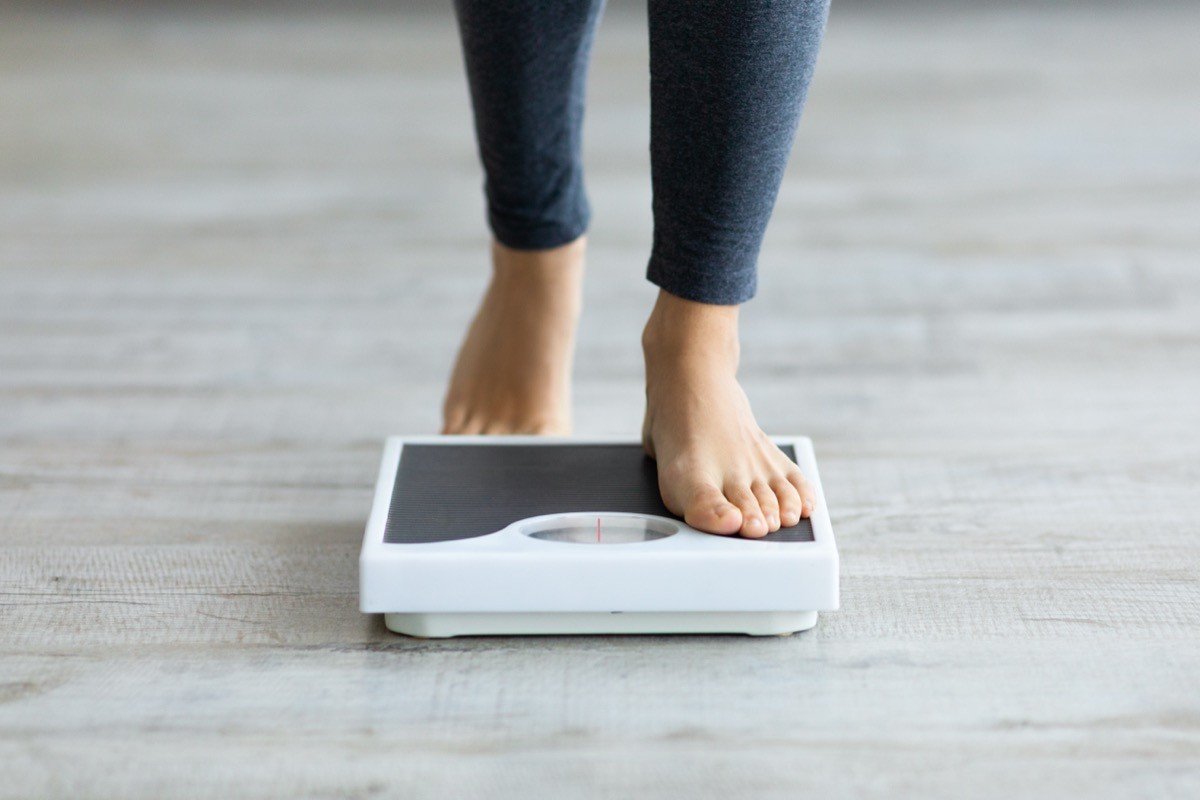The No. 1 Habit Experts Say Can Prevent Back Pain

According to the CDC, 39% of Americans had back pain in 2019. According to the agency’s data brief, people responded from a little, a lot, and somewhere in between to the question, “Over the past 3 months, how much have you been bothered by back pain?” Back pain is clearly a common issue. “Most people with back pain tend to blame it on one thing they did or didn’t do,” physical medicine and rehabilitation specialist Sheila Dugan, MD, tells Rush University Medical Center. “But it’s usually the buildup of a number of factors that is responsible.” So how can you prevent back pain from happening? Here’s what the experts say.
RELATED: 25 Common Pains You Should Never Ignore.
Maintain a Healthy Weight

There are plenty of good reasons to lose weight if you’re overweight or obese, but it’s especially important for a strong, pain-free back. “Maintaining a healthy weight or losing weight can help ease or prevent back issues and reduces stress on other joints as well,” says Board Certified Sports and Pain Specialist Jaspal Ricky Singh, MD. “If you are heavier than your ideal weight, your muscles will need to work harder to perform everyday tasks. By losing weight, you are reducing the strain on your back, including the muscles, ligaments and discs.”
Spine Curvature

Too much weight can impact the way your spine curves. “Extra weight puts a strain on your back. In order to deal with extra weight, your spine can become tilted and stressed unevenly,” says UC Davis Health. “The back may lose its proper support and develop an unnatural curvature of the spine over time.”
Inflammation and Back Pain

A nutritious diet is important for maintaining a healthy weight and preventing inflammation. “The most important component of spine health is prevention, which starts with treating our bodies well,” orthopedic surgeon Robert Berkowitz, MD, tells University Hospitals. “If we treat our bodies nicely, they tend to treat us back in a nice way. The average American is overly inflamed. That’s mainly because of our diet. We eat too many carbohydrates and too many bad fats, as opposed to good fats. Essentially, sugar and processed foods are destroying our bodies by causing inflammation.”
Ideal Weight and Back Pain

So what exactly is the right weight for back health? “I recommend staying within 10 pounds of your ideal weight to keep your back healthy and pain-free,” says Dr. Singh. “The good news is that physical activity also helps manage back pain. In fact, exercise may be your best bet for preventing and managing chronic low back pain.”
RELATED: 7 Easy Stretches You Can Do at Your Desk Chair.
Move It

Regular movement not only helps keep weight down, but is good for back health. “Take a walk or a light jog. Do some stretching,” Dr. Berkowitz says. “High-intensity interval training is real trendy now and that certainly has been shown to have some benefit. But if that’s not your thing, just find an activity you enjoy to keep you moving. One of the biggest problems people have these days is they are stationary all day long.”
Consistency Is Key

Taking care of your spine and preventing back pain is something that takes consistent good habits. “I look at spine health similar to how I view heart health,” says Andrew Chung, DO, spine surgeon with Banner Brain & Spine, who asks his patients how they would change their lifestyles if they had a heart attack. “It takes daily commitment. It doesn’t happen overnight or with temporary efforts. You would probably eat healthily, exercise regularly and avoid smoking and other risky behaviors for the rest of your life. It’s the same idea when it comes to spine health. Think of your first episode of back pain as a ‘back attack.’ Ask yourself, ‘Do you want to keep living in pain?’ If not, it’s time to get to work.”